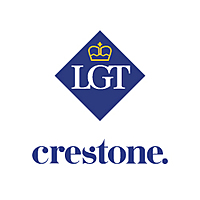Do fixed income and alternatives present opportunities?
With yields rising sharply, bonds are beginning to look interesting again. This has led investors to suggest that fixed income will reclaim its status as a worthy diversifier. However, a rising rate environment can present challenges for fixed income investments. We asked our panellists to discuss their outlook for fixed income and asked whether alternatives present an attractive opportunity in this environment.
This discussion is an excerpt from LGT Crestone’s most recent investment forum, you can access the full report attached below in this wire.
Which factors should be influencing an investor’s exposure to fixed income?
Scott Haslem, Chief Investment Officer at LGT Crestone, explained that an investor’s view on fixed income will partly be influenced by their view on secular stagnation and similar themes over a three to five-year time frame. Where fixed income fits in a multi asset portfolio strategically and tactically will depend on whether investors believe inflation will be higher than average and interest rates are stickier. He added that consideration also needs to be given to long-held views around technology and demographics, and whether these will return to the fore, ultimately lowering inflation and interest rates.
What is the interest rate outlook for the next three to five years?
Anthony Kirkham, Head of Investment Management at Western Asset Management, stated that a typical core bond fund investing primarily in government, investment grade, high quality issuers had a yield of around 1.1% in August 2021, but this is now close to 5%.
“If you can get that level of yield without taking much risk and you can still get a positive return, even if it goes a whole percent higher, why wouldn’t you take out that sort of insurance?”
Amy Xie-Patrick, Head of Income Strategies at Pendal Group, explained that with the risk-free rate having been so low over the past decade, investors were forced to climb the risk curve and invest in equities and emerging markets because there was no yield. Now that the risk-free rate has increased, she feels investors should be doing the reverse. She prefers investment grade credit over other credit categories as it provides a liquidity premium on par with near-crisis or recession-type levels.
“High yield credit isn’t there yet. It’s implying default rates that you see in recessions and times of crisis. You’re simply not getting the liquidity premium in high yield—and similarly in emerging markets, they’re yet to find a bottom.”
With regards to credit beta, Xie-Patrick prefers shorter-dated exposures and less rate-sensitive sectors. However, she acknowledges that for investors who have already gone up the capital structure, they are less likely to be impacted by volatility and will be able to enjoy a more assured income stream.
What is the outlook for long-term rates?
Kirkham feels that the deflationary factors experienced pre-pandemic are likely to return. Government debt generally increased through the pandemic, and as we have borrowed from future growth to some extent, this will need to be paid back at some point. He also feels that demographics and technology factors will likely drag on growth.
Alex Joiner, Chief Economist at IFM Investors, added that Australia was one of the stronger economies to emerge from the pandemic. He expects the risk-free rate in Australia to settle around a much lower average than it has historically, and commented that central banks may be inclined to keep rates around 2% rather if we were to tip into a recession.
What value do alternative investments present?
Katie Petering, Head of Product Strategy at BlackRock Australia, said that BlackRock currently has a relative overweight to private assets. Infrastructure is particularly attractive due to its inflation linked cashflows and opportunities in the transition to net zero, while BlackRock is cautious on real estate. She stressed, however, that investors need to remain cautious and selective about where they invest.
Joiner explained that IFM Investors prefers long-dated, monopolistic infrastructure assets, as these have been great inflation hedges. Its core portfolios have an inflation beta greater than 1. He explained that because these assets are so long-dated, factors such as geo-political risk are considered closely, which can make some emerging market exposures challenging. IFM Investors prefers to invest in jurisdictions with regulatory stability, such as Europe and the US, and sees renewables as remaining in demand. He noted that industry funds currently have around 25-30% exposure to private markets, and sees this trend growing among global investors.
The LGT Crestone view: We are underweight short maturity and high yield credit, neutral investment grade credit, and overweight government bonds, as they have largely incorporated an aggressive rate hiking cycle. Within alternatives, we favour core real assets and private debt, and highlight the ongoing importance of manager selection.
Where would you allocate your incremental dollar?
Mick Dillon Portfolio Manager Brown Advisory: "Equities are still a great investment if you take a long-term view."
Katie Petering Head of Product Strategy BlackRock Australia: "I would invest in investment grade credit, inflation-linked bonds, and global macro hedge funds."
Alex Joiner Chief Economist IFM Investors: "In this environment, I would allocate to infrastructure and bonds."
Amy Xie-Patrick Head of Income Strategies Pendal Group: "I have a preference for investment grade credit, inflation-linked bonds or inflation swaps."
Anthony Kirkham Head of Investment Management Western Asset Management: "I would be allocating to bonds."
Learn what LGT Crestone can do for your portfolio
With access to an unrivalled network of strategic partners and specialist investment managers, LGT Crestone offers one of the most comprehensive and global product and service offerings in Australian wealth management.
Click 'CONTACT' to find out more.
3 topics

